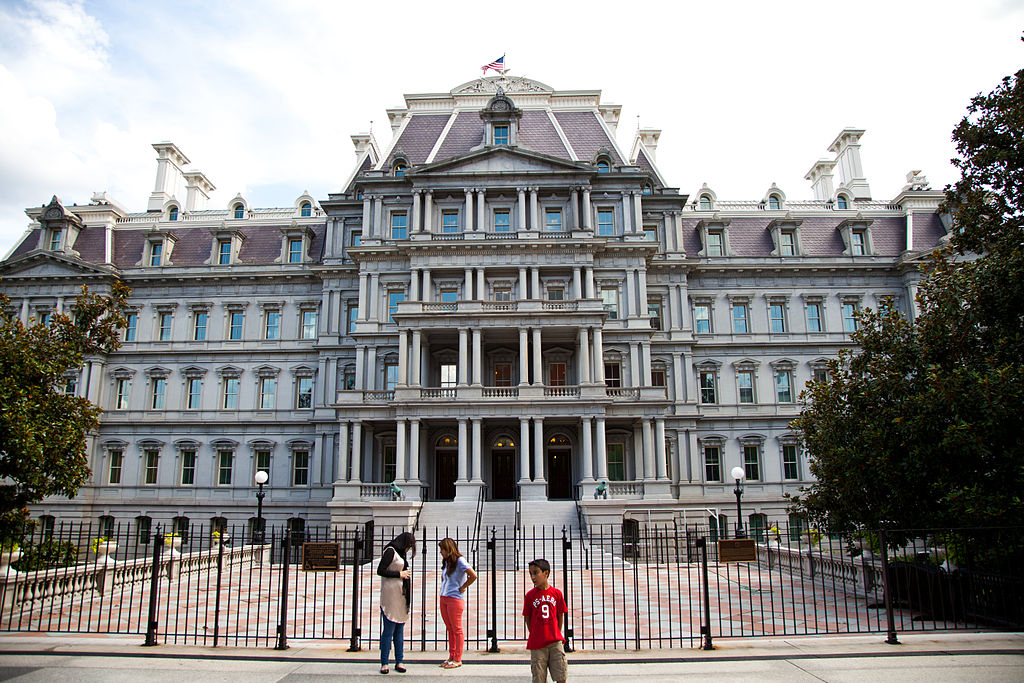For a small-town kid from rural Texas, riding the Metro through the tubes of D.C. to visit the Eisenhower office of the White House is like something out of a super patriotic children’s story. When the closest Wal-Mart is 30 miles away and any city bigger than Waco is unbelievable, meeting with senators and assistants to the president is not something you dream of doing.
So why did I visit the office of the White House and meet with government officials?
It has to do with this word called advocacy.
What is advocacy, and why are we called to do it?

For my internship, I’ve been working with an organization called LUCHA Ministries. We provide holistic care for Latino immigrants in the Fredericksburg, Virginia area. This is manifested in several ways, from food banks for families in crisis to English courses for adults and tutoring for kids. However, one of our recent objectives is reform for our immigration system.
My supervisors Greg and Sue Smith partner with the Cooperative Baptist Fellowship, the entity that hosted this Advocacy in Action summit.
Stephen Reeves, the CBF coordinator for advocacy and partnerships, defined advocacy in this way:
“The most basic definition is to speak out on behalf of another, to take their concerns as your own and use your voice to help change that problem or situation.”
He maintained this can be done on a state, federal or city-level but can also be done by regular individuals through non-policy means.
CBF is a faith-based organization that works in some of the poorest rural and urban counties in the United States.
“We do advocacy because of the neighbors we meet in our missions work, “ Reeves said. “It’s about real people and encountering their need.”

However, Reeves and other CBF leaders say it takes more than speaking up for neighbors; there must be an element of empowerment that comes from the community itself.
“It is also important for an advocate to help an individual or group find and effectively use their own voice,” Reeves said in an article in Baptist Today.
“We should not assume we always have the right answer for what others need; we should help empower them to advocate for themselves as well.”
During the summit, various CBF pastors, scholars and nonprofit partners spoke about their most pressing concerns in policy.
These included:
- Immigration Reform
- Payday Loans/ Predatory Lending
- Homelessness and Mental Health
- Racial Reconciliation
- Mass Incarceration and Prison Reform
- International Religious Persecution
- Hunger Alleviation and Food Deserts
Every person could recite a story of a friend or neighbor who was affected by these issues. One CBF personnel from Iran spoke about the persecution of Muslims and Christians in Iran, Afghanistan and Syria. He also talked about the prejudice refugees face when they come to the United States.
CBF members from Alabama who represent black and white congregations spoke about the hardships they face as they press toward equality and reconciliation in the wake of Selma and racial tension that still permeates their communities.
In my own group, I was joined by two college students born in Central America but raised in Virginia. They were granted Deferred Action for Childhood Arrivals and spoke about how it felt to be unwelcome in the country they grew up in while knowing they can’t return to their country of origin.
Their stories reminded me of my own friends back home in Texas who had lived in the shadows since they were 8, waiting in a citizenship line that doesn’t exist.
Despite our different concerns, all of our congregations and communities were united in one common goal outlined in Proverbs:
“Speak up for those who cannot speak up for themselves… defend the rights of the poor and those whose need is great.”
The idea of responsible citizenship is taught in fifth grade classrooms. The concepts of neighbor-love and speaking up for the “least of these” is prominent in Biblical texts.

We are cautioned to be careful with the term “least of these” since it has the connotation of someone who is not as good, clever or holy as us. In the teachings of Jesus, these are the people who are first in the kingdom of heaven.
Theologians and pastors like Martin Luther King and Dietrich Bonhoeffer were quoted throughout the summit.
“Silence in the face of evil is evil itself.”
And
“There is another element that must be present in our struggle that then makes our resistance and nonviolence truly meaningful. That element is reconciliation. Our ultimate end must be the creation of the beloved community.”
Advocates were reminded of the imperative to be bipartisan; party bias must be removed from any effective work.
“We can’t fall into the good guys versus bad guys game,” Reeves said. “People over politics; it’s not about winning at all costs.”
In the end, advocacy is not centered around lobbying or party agendas.
It is about using our citizenship wisely, responsibly and relationally. It is about being a good neighbor. It is about speaking up when others are silent. It is about the cultivation of beloved community, and it is love transformed into action.






Leave a Reply